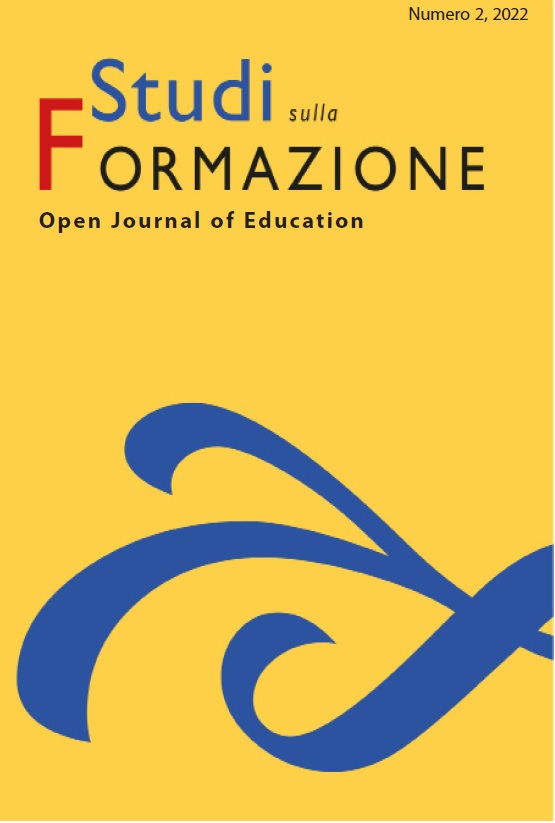Relazioni fragili: dalla scuola dell’accoglienza alla comunicazione virtuale. Come sono cambiati i significati delle parole e delle emozioni nell’epoca post Covid
Published 2022-12-31
Keywords
- school,
- distance learning,
- educational relationship,
- educational care,
- European project
How to Cite
Abstract
There are already many writings on how much the Covid19 pandemic has affected relationships and interpersonal communication. School has been one of the main players in this problematic and painful context, leaving many doubts about the quality of learning and relationships, increasingly conditioned by technological and virtual tools. There is already a lot of literature on this issue, but there remains the essential task of continuing to reflect on the future of our school which is struggling to find credibility, especially from a social and educational point of view. Is the school able, today, to respond to the new frailties that have arisen in the phases of the “non-dialogue” imposed by medical isolation? Are there margins for recovery to restore the etymological and narrative centrality of the word linked to emotions and dialogue? Does addressing issues such as “Educational care”, “solidarity”, “welcome”, “mutual knowledge” still have a constructive and phenomenological value for the school and the many activities that should develop within it? Many educational projects have moved in this direction: experimenting with new techniques and practices of inclusion and interpersonal relationships, to rediscover the value of closeness and mutual knowledge. The Erasmus KA2 WIN (Writing for Inclusion) project is about to end, after a two-year course, characterized by the virtual teaching imposed by the pandemic and the primary schools involved, students and teachers, have experimented with digital storytelling as a tool for establishing relationships “a distance” and reflect on the quality of learning. This article reconstructs and attempts a qualitative assessment of two years of "virtual" writings dedicated to school inclusion, conducted by 4 European primary schools, to highlight the lights and shadows of an experiment conducted exclusively at a distance.


